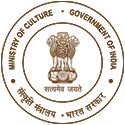A three-day national seminar on “Swami Vivekananda, Indian Culture and Global Peace” was organized by Society for Social Empowerment from December 11-13, 2020 by Society for Social Empowerment and Indian Council of Philosophical Research, New Delhi. Gandhi Smirti and Drashan Samiti and Choudhury Bansilal University, Bhiwani, Haryana were the knowledge partners. Historians, academicians, authors, writers, spoke on the occasion during different sessions on varied subjects.
Shri Arif Mohammad Khan, Hon’ble Governor of Kerala who was the chief guest expressed his concern regarding what India faced due to the long spell of foreign domination. We started neglecting our own ethics and heritage. He said that all people cannot be confined to one interpretation. It is not a question of dogma or faith, but a question of anubhuti (experience). Dharma and religion is completely different from each other. Dharma is an antonym of selfishness. He went on to add that when Vivekananda addressed the Parliament of Religion in Chicago he talked about inclusivity, divinity, equality of mankind.
Prof. Jagmohan Rajput, Former Director, NCERT delivered the key-note address and outlined Swamiji’s opinion about education and the role of a teacher in building society through inculcating character building of the students. He said that Swamiji not only ensured that the world should not only know India but should be interested in India
Earlier delivering the welcome address, Director GSDS, Shri Dipanker Shri Gyan opined that Mahatma Gandhi was very much influenced by Swami Vivekananda. Gandhiji understood the cardinal lesson from the philosophy of Swamiji and sacrificed his life to ensure equality in India. Beside independence movement, social reforms therefore remained an integral part of Gandhi and it has been duly incorporated into the Indian constitution which remains the ruling book of the independent India.
Some of the subjects on which discussions were held during the three-day seminar included:
i. Humanism and Global Peace: Swami Vivekananda Perspective
ii. Cubicles of Development and Marginalization: Understanding the Alternatives in Swami Vivekananda
iii. Vivekananda,: Vedanta and Spiritual Awakening
iv. The relevance of spiritual humanitarianism of Swami Vivekananda in the midst of Corona Pandemic
v. Relevance of Vivekananda’s Views on Women Education in Current Scenarir
vi. Saints of India – Swami Vivekananda, Beyond the Realm of Time and Space
vii. Rediscovering Global Peace With Spiritual Humanity of Swami Vivekananda in Contemporary Times
viii. Swami Vivekananda and the Politics of Religion
ix. Emerging Cultural Diplomacy and the Legacy of Swami
x. Imagining Modern India Through the Lens of Vivekananda
xi. Relevance of Swami Vivekananda in India Today
xii. Practicality of Vedanta in Indian Society and Vivekananda
xiii. The Art of Seva, Sadhana and Public Welfare: How to (Re) locate Swami Vivekananda in Contemporary Time?
xiv. Contextualizing Swami Vivekananda’s View on Social Integration
xv. Swami Vivekananda and Vedanta – A Panacea for Humanity
xvi. Vivekananda and Global Order
xvii. विवेकानंद की सामाजिक वैचारिकी और विश्वबंधुत्व संबंधी दर्शन (Vivekananda's philosophy on social ideology and cosmopolitanism)
National Seminar on Swami Vivekananda, Indian Culture and Global Peace
Webinar












